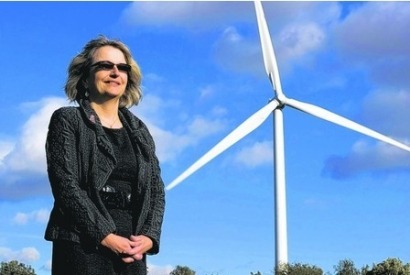
The industry-focused MSc Environmental Technology Renewable Energy run by the Department of Geography at the University of Hull will place students at the heart of the wind, and marine energy sectors.
The region has attracted major inward investment from renewable energy businesses, including Siemens, which has chosen Hull to build wind turbines for the North Sea wind farms. Also home to innovative new renewable technologies, the Humber has been awarded enterprise zone status by the government to help create a 'renewable energy super cluster' of original equipment manufacturers.
Supported by CASS, the University's business-facing renewable energy and environment hub, the MSc will provide the specific skills and knowledge to work at a high level in industry, the public sector and consultancy through drawing on research expertise and industry relationships.
Starting this September, the students will examine the key scientific and technical principles underlying a range of renewable energy technologies, learn about product design and life cycles, develop research and analytical skills relevant to renewable energy resource analysis, and gain practical experience through industry placements with integrated dissertation projects.
Professor Stephanie Haywood, director of CASS, said that the race was on to provide a ready workforce in step with the pace of change towards establishing a broad base of clean energy generation. "This new programme will fill a niche in providing skills that are vital to the development of the renewable energy sector both nationally and internationally".
Professor Jack Hardisty, the programme director and a world authority on tidal stream energy, added: "The University has commercial relationships with some of the biggest names in renewables and is contributing to the development of innovative green energy technology worldwide. We are therefore very well placed to give students the unique opportunity to learn from real world examples."
One of the key modules with teach how to run operational wind and tidal stream power installations based upon web and database technologies used in the industry, as well as sourcing and analysing real time operational data from renewable energy installations in Hull and in the Humber.
The aim of the programme is to train environmental technologists and managers to work in industry, consultancy, government, academia or NGOs, both nationally and internationally. "The demand for educated, well-trained professionals is there in the job market, but we need to work in tandem with industry and particularly energy businesses to identify transferable skills and ascertain specifically what is required and when," concludes Prof Haywood. The new Master's will aim to provide just these skills.
[Inset: Professor Stephanie Haywood, director of CASS]
For additional information:

